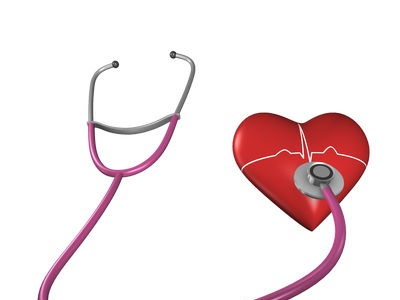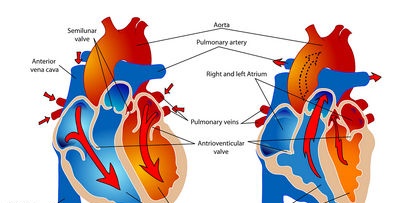|
 Progress! This short, energetic word has firmly entered our everyday life and has become familiar. Since the middle of the 20th century, the pace of scientific and technological progress has been accelerating all the time, causing surprise and admiration even among us - witnesses and participants in this process. Progress! This short, energetic word has firmly entered our everyday life and has become familiar. Since the middle of the 20th century, the pace of scientific and technological progress has been accelerating all the time, causing surprise and admiration even among us - witnesses and participants in this process.
We are accustomed to a growing stream of discoveries and accomplishments that make even the most daring hypotheses a reality. Jules Verne, describing fantastic travels to the moon and under water, hardly imagined that a person would not only master space, visit our nearest satellite, descend to the bottom of the ocean, but also comprehend the structure of the atmosphere of other planets, discover the laws governing heredity, and be able to transplant a heart , will create new seas and build machines that will facilitate both physical and mental work!
At the new stage of the socio-economic development of our society, scientific and technological progress is assigned a decisive place. By 2000, it is planned to double the country's production potential with its radical qualitative renewal. It is possible to solve these problems with the further deepening of the scientific and technological revolution, which opens up new prospects for a sharp increase in labor productivity and the progress of society as a whole. The achievements of science in our society are placed at the service of man, ensuring his well-being and well-being.
However, certain costs of scientific and technological progress are inevitable. Developing science, knowing the laws of nature and putting them in his service, man has not yet become a master over himself. The pandemics of plague, smallpox, cholera, which claimed millions of lives, have disappeared, but the number of diseases that are often called "Diseases of civilization"... Along with the word "NTR" there is another, acquiring more and more ominous sound - ischemic heart disease (coronary heart disease, or coronary heart disease). A hundred years ago, coronary heart disease was a medical curiosity. Currently, heart disease in highly developed countries is the cause of more than half of all deaths. These diseases, in addition to economic losses, bring irreparable moral and psychological damage. They kill people in their prime, energetic, educated, experienced leaders, talented scientists, writers and artists. Our fathers, mothers and friends are passing away. Their death is meaningless, it could have been prevented. The most energetic measures must be taken for this.
This is not to say that such measures are not being taken. We have more doctors than in any country in the world. A specialized cardiological service has been created. A cardiological research center and republican scientific centers have been established, which have united prominent specialists in this industry. A system has been organized that provides urgent hospitalization and special medical care. The position of a cardiologist has been introduced in most polyclinics, and cardiology departments are compulsory in almost all hospitals.
The measures taken led to a decrease in mortality, that is, they provided more effective treatment and return to work of patients. However, the number of cardiovascular patients has not decreased, and the number of those suffering from hypertension and ischemic heart disease among the young (able-bodied) population, including in rural areas, is increasing. So, over 5 years the number of patients with essential hypertension per 1000 people increased from 17.7 to 19.9, coronary artery disease - from 8.5 to 9.4. Considering that in the same years there was a clear decrease in mortality from these diseases in hospitals, it can be assumed that the most common cause of death is the so-called sudden death.
 Heart lesions are insidious and often lead to tragedy quite unexpectedly against the background of apparent health.In more than half of cases, myocardial infarction, which is a formidable complication of coronary artery disease, is diagnosed in persons who have not consulted a doctor, considering themselves to be practically healthy. Heart lesions are insidious and often lead to tragedy quite unexpectedly against the background of apparent health.In more than half of cases, myocardial infarction, which is a formidable complication of coronary artery disease, is diagnosed in persons who have not consulted a doctor, considering themselves to be practically healthy.
According to studies carried out in 19 highly developed countries, 73% of deaths due to acute heart failure did not have time to receive any medical care, since death occurred suddenly within the first 30 minutes from the onset of the attack.
This situation cannot but cause alarm. Diseases of the cardiovascular system have become the number one problem in modern medicine. This problem is attracting more and more attention of the general public. "If you are a man and you are between 30 and 60 years old, you have one in ten chance that you will become a victim of a heart attack in the next 10 years, and then one in three chance that you will die from it," wrote the American magazine Life. - If you are overweight, high blood pressure and too much cholesterol in your blood, your chances of having a heart attack jump to one in two. And if you are also a heavy smoker, then all the chances are on your side. ".
However, it should be emphasized that hypertension, atherosclerosis, coronary artery disease, myocardial infarction and other lesions of the cardiovascular system have become so widespread only in the last decades. The well-known cardiologist A.L. Myasnikov recalled that in the mid-1920s, when he worked in one of the country's leading clinics in Leningrad, he only saw isolated cases of heart attack and hypertension. And now everyone knows patients who have suffered a heart attack. They are among your relatives and friends. Young ambulance doctors make a diagnosis without difficulty, referring such patients to specialized departments of hospitals.
But this matter alone cannot be helped. To overcome diseases of the heart and blood vessels, you need to learn how to prevent their occurrence. Primary prevention of disease is needed, and this is difficult. Even Academician I.P. Pavlov emphasized that the causes of the disease begin to act in the body much earlier than the patient becomes the object of medical attention.
Any of the most complex mechanisms created by man cannot be compared with the greatest creation of nature - a living organism. More than 100 years ago, the prominent Russian physiologist Ilya Faddeevich Zion, giving a lecture at the St. Petersburg Medical-Surgical Academy, explained what physiology is and what its significance is. He reminded the listeners of the well-known case of a priest who tried to explain to the villagers how a locomotive drives a train. During his explanation, a train passed by, carrying several horses. "Still, a train cannot move without horses.", - the villagers remarked to the priest with triumph.
“The funny thing about this episode,” said Zion, “is not at all that the peasants made a mistake in the appointment of the horses transported by the train, the funny thing is that both the peasants and the priest imagined that it was much easier to understand how the horses set the train in motion. than to understand the mechanism of action of the locomotive. In fact, even one articulation of a horse is already infinitely more complex than the construction of the entire locomotive. What can we say about the internal mechanics of muscle contractions and about the intervention of the nervous system, both in bringing the muscles into an active state, and in coordinating their activity. "
Our contemporary, unfortunately, did not go far from the described peasant, presumptuously believing that, having learned how to design robots, control computers, he would easily cope with his health problems. We do not take into account the fact that diseases of the cardiovascular system are primarily the result of gross disregard for the requirements of a person's biological nature.
The growth of diseases of the heart and blood vessels, as you know, is the lot of residents of developed countries characterized by high industrial potential, a continuously increasing flow of information, etc.For example, the mortality rate of people aged 40 and over from heart damage in Guatemala was 7 times, in Colombia 10 times and in Mexico 20 times lower than in the United States. In a survey of 10 thousand Indians in Mexico, they did not reveal any signs of a heart attack. Autopsies of 6,500 Bantu people in Uganda found no cases of coronary atherosclerosis or myocardial infarction. "Hypertension is the payback for civilization", - said at a symposium of the World Health Organization (WHO).
However, civilization itself is by no means hostile to our human nature. In the conditions of modern civilization, it is quite possible to stop the growth of diseases of the cardiovascular system, and then reduce them to a minimum and defeat them. To do this, first of all, you need to understand what exactly threatens us and why this threat has become so real these days.
The main reason "Diseases of civilization" in general and cardiovascular diseases, in particular, - ignoring the requirements of the biological nature of man. The opinion has become widespread that with the progress of society, the biological is more and more subordinate to the conditions of social life, that our task is to strengthen this subordination, to remake biological nature ...
Human biological nature is conservative, and it is unreasonable to forget about its requirements. In general terms, everyone understands this, but not everyone knows what exactly needs to be done for this.
Kositsky G.I. - Let's get away from a heart attack
|
 Progress! This short, energetic word has firmly entered our everyday life and has become familiar. Since the middle of the 20th century, the pace of scientific and technological progress has been accelerating all the time, causing surprise and admiration even among us - witnesses and participants in this process.
Progress! This short, energetic word has firmly entered our everyday life and has become familiar. Since the middle of the 20th century, the pace of scientific and technological progress has been accelerating all the time, causing surprise and admiration even among us - witnesses and participants in this process. Heart lesions are insidious and often lead to tragedy quite unexpectedly against the background of apparent health.In more than half of cases, myocardial infarction, which is a formidable complication of coronary artery disease, is diagnosed in persons who have not consulted a doctor, considering themselves to be practically healthy.
Heart lesions are insidious and often lead to tragedy quite unexpectedly against the background of apparent health.In more than half of cases, myocardial infarction, which is a formidable complication of coronary artery disease, is diagnosed in persons who have not consulted a doctor, considering themselves to be practically healthy.









